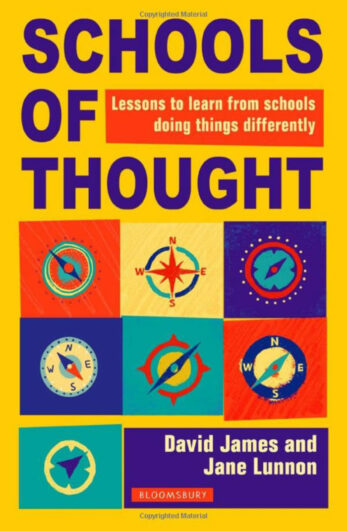This fascinating collection of essays from across the education spectrum could not have come at a better time.
At its heart is a plea from its editors, JL Dutaut and Lucy Rycroft-Smith, that teachers are put back at all levels of the education system and given the authority and agency to enact meaningful change.
This volume follows on from an international edition of the book Flip the System, Changing Education from the Ground Up (Kneyber & Evers 2015) and continues in its radical tone and calls for change.
The book feels so timely because of the increased desire for teachers to take control of their profession: with the rise of teacher-led conferences like ResearchEd and Northern Rock (organised by two contributors to this book, Tom Bennett and Debra Kidd respectively) and the launch last year of the Chartered College of Teaching, with a stated aim to be “an autonomous, member-driven organisation, established to promote the learning, improvement and recognition of the art, science and practice of teaching for the public benefit”.
What is perhaps missing from some chapters is a sense of what can be done to change this system
Indeed, the chapter by the college’s chief executive, Alison Peacock, provides a useful axis around which many of the other essays revolve.
Another essay that stands out from the pack is by David Weston, discussing how data could be (and should be) used in schools to empower rather than monitor teachers.
This idea of over-monitoring professionals is a theme which runs through this collection and is well articulated throughout; it will feel very familiar to most of the teachers and school leaders reading it.
This problem of data distorting the system is explored in the chapter by Robert Loe, who makes a convincing case that Goodhart’s Law makes it inevitable that any measure used to judge a school (however well-meaning) will force schools to look for ways to game the system, eventually causing the measure to lose all value.
Each essay identifies clear problems within our education system, but what is perhaps missing from some chapters is a sense of what can be done to change this system.
One that does provide the starting point for this change is by Steve Watson, entitled ‘A manifesto for control’, which suggests schools need democracy, scholarship, activism and solidarity to really flip the system and put teachers back in control.
Another useful chapter is by Tom Bennett, which shows how a more informed profession will be one that can take more control of its destiny, and then provides practical suggestions for how this can be achieved.
It is probably school leaders and policymakers who most need to read this book
As this is a book on teacher agency I would have liked to have walked away with a greater sense of what I, as a classroom teacher, could do to make a difference and make some of the changes that this book calls for.
I would also have expected to have seen more contributions from classroom teachers in a book about empowering the teaching profession (only nine of the 40 essays were written by people who were primarily classroom teachers at the time it was written) but perhaps this says something about the depth of the problem facing our profession; that these teacher voices are not there, are hard to find or are unwilling to take part.
This is an exciting and important book that brings together a wide range of people from across the world of education, all of whom are calling for the same thing: for teachers to take control of education in the UK. It very clearly shows where the problems are and in many cases, proposes clear solutions.
While this book will inform and empower classroom teachers, it is probably school leaders and policymakers who most need to read this book as, sadly it would seem, they are the ones who can actually do what this book calls for and flip the system.








Your thoughts